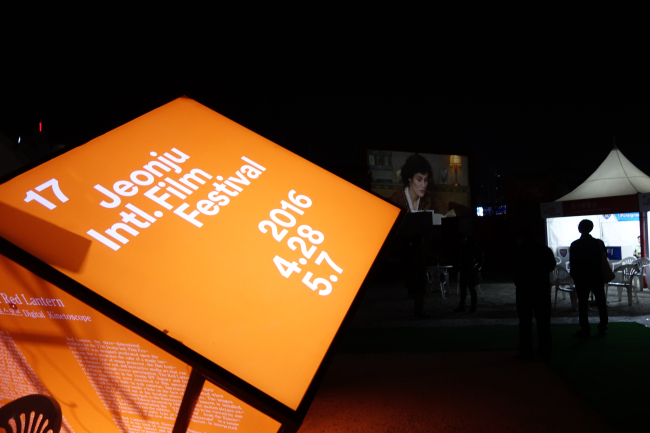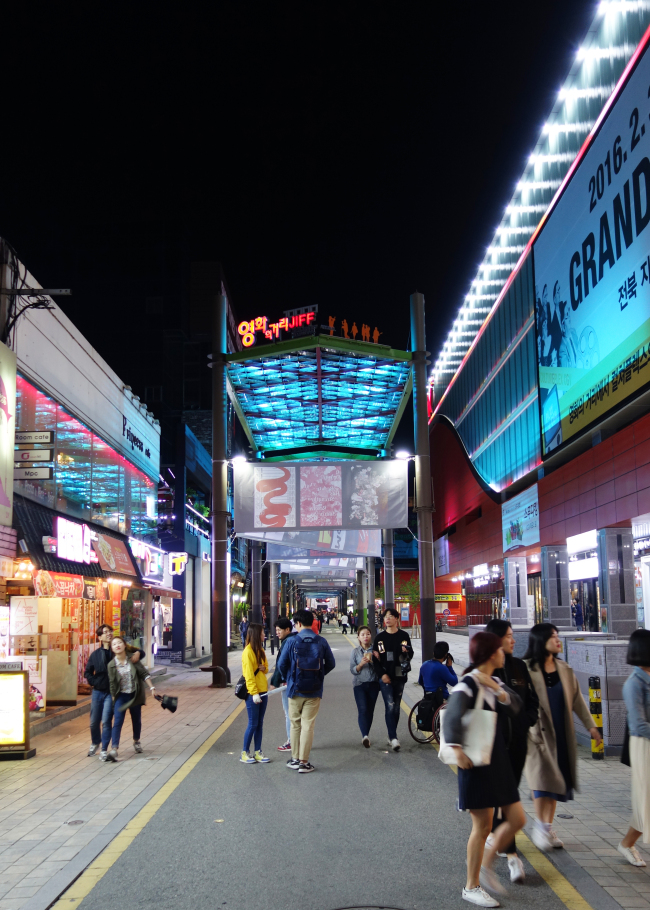Freedom and diversity at JIFF
JIFF’s 17th edition may mark a turning point for Korea’s top indie film fest
By Rumy DooPublished : May 1, 2016 - 20:22
Among Jeonju International Film Festival’s rich lineup of films this year is a controversial documentary titled “Spy Nation.”
The work spotlights a 2013 case in which South Korea’s intelligence agency accused Yu Woo-sung, an ethnic Chinese -- who defected from North Korea and has since become a Seoul Metropolitan Government official -- of spying for the North. In the trial process, it was exposed that the National Intelligence Service had fabricated evidence against Yu in an attempt to charge him with espionage. In October 2015, the Supreme Court declared Yu not guilty of espionage.
The work spotlights a 2013 case in which South Korea’s intelligence agency accused Yu Woo-sung, an ethnic Chinese -- who defected from North Korea and has since become a Seoul Metropolitan Government official -- of spying for the North. In the trial process, it was exposed that the National Intelligence Service had fabricated evidence against Yu in an attempt to charge him with espionage. In October 2015, the Supreme Court declared Yu not guilty of espionage.

“Spy Nation” was directed by Choi Seung-ho. It was screened on Saturday in the festival’s Korea Cinemascape category, which showcases a number of documentaries critical of the society.
Choi is a producer at News Tapa, a progressive media outlet of the Korea Center for Investigative Journalism.
Despite the controversial subject matter, “Spy Nation” was never subjected to any form of censorship, JIFF officials said.
“Many people were interested in the film, and we knew that many groups were watching us closely,” said Kim Jae-ha, who is in JIFF’s communications team. “But, somewhat surprisingly, we never received any kind of pressure to cancel its screening.”
“The essence of films is not the technical aspect, but the freedom of expression,” said Kim Seung-soo, mayor of Jeonju and JIFF’s chairman, at the festival’s opening ceremony on Thursday night, vowing that JIFF would continue to guard this essence of films.
The Jeonju City Government’s stance is in stark contrast to the current deadlock between the organizers of the Busan International Film Festival, Asia’s largest film event, and the Busan Metropolitan Government over BIFF’s screening of a controversial film in 2014.

Interactive programs
The screening schedule of this year’s JIFF, which runs through May 7, includes a record number of films --163 features and 48 shorts -- from 45 countries. The categories are varied and rich, ranging from the international and Korean competition categories to special focuses on Shakespeare-themed films, French director Philippe Grandrieux’s works and Chilean cinema, which is quickly rising in the global cinema scene.
In addition to the film screenings, there are interactive programs in which filmgoers can meet with filmmakers.
The Talk Class programs allow intimate conversations between actors, directors and 20 or so audience members at the Cafe Haruilgi on Cinema Street. At the Cinema Class programs, audience members can pose questions to directors after film screenings. On Monday, a special forum on international trends in cinema will feature Chilean film directors Alejandro Fernandez Almedras and Jose Luis Torress Leiva as well as Raul Camargo, director of Chile’s Fic Valdivia International Film Festival.
“I’m a resident of Jeonju, and it’s not easy to have opportunities like this where we can not only see a huge variety of foreign films, but also meet in person with directors and actors and ask questions,” said 24-year-old university student Kim Ji-eun, who attended a Talk Class program on Friday afternoon.
Foreign investors eye JIFF
The Jeonju Cinema Project, JIFF’s signature film category, annually features three films that are produced with funding from JIFF. Each film is allotted a maximum of 100 million won ($87,680) for production.
Domestic and foreign film companies have also started making investments in the Jeonju Cinema Project this year, creating more opportunities for producers to attract funding.
“The Decent” by Austrian director Lukas Valenta Rinner, one of the three films in this year’s Jeonju Cinema Project, received additional funding from Austria’s BKA film fund and the University of Cinema in Buenos Aires, Argentina.
The other two films are “Great Patrioteers,” directed by Kim Soo-hyun and coproduced by Indieplug, one of Korea’s top indie movie production companies, and “A Stray Goat,” directed by Cho Jae-min. It is the first production by Myung Films’ educational arm Myung Films Institute, which opened in April 2015.
An awards ceremony for films competing in the International Competition, the Korean Competition, and the Korean Competition for Shorts will be held Thursday.
The closing film, a digitally remastered version of Ryoo Seung-wan’s 2000 debut film “Die Bad” will be screened outdoors on Saturday, May 7.
By Rumy Doo (doo@heraldcorp.com)











![[Today’s K-pop] BTS pop-up event to come to Seoul](http://res.heraldm.com/phpwas/restmb_idxmake.php?idx=644&simg=/content/image/2024/04/17/20240417050734_0.jpg&u=)




![[KH Explains] Hyundai's full hybrid edge to pay off amid slow transition to pure EVs](http://res.heraldm.com/phpwas/restmb_idxmake.php?idx=652&simg=/content/image/2024/04/18/20240418050645_0.jpg&u=20240419100350)

![[Today’s K-pop] Zico drops snippet of collaboration with Jennie](http://res.heraldm.com/phpwas/restmb_idxmake.php?idx=642&simg=/content/image/2024/04/18/20240418050702_0.jpg&u=)